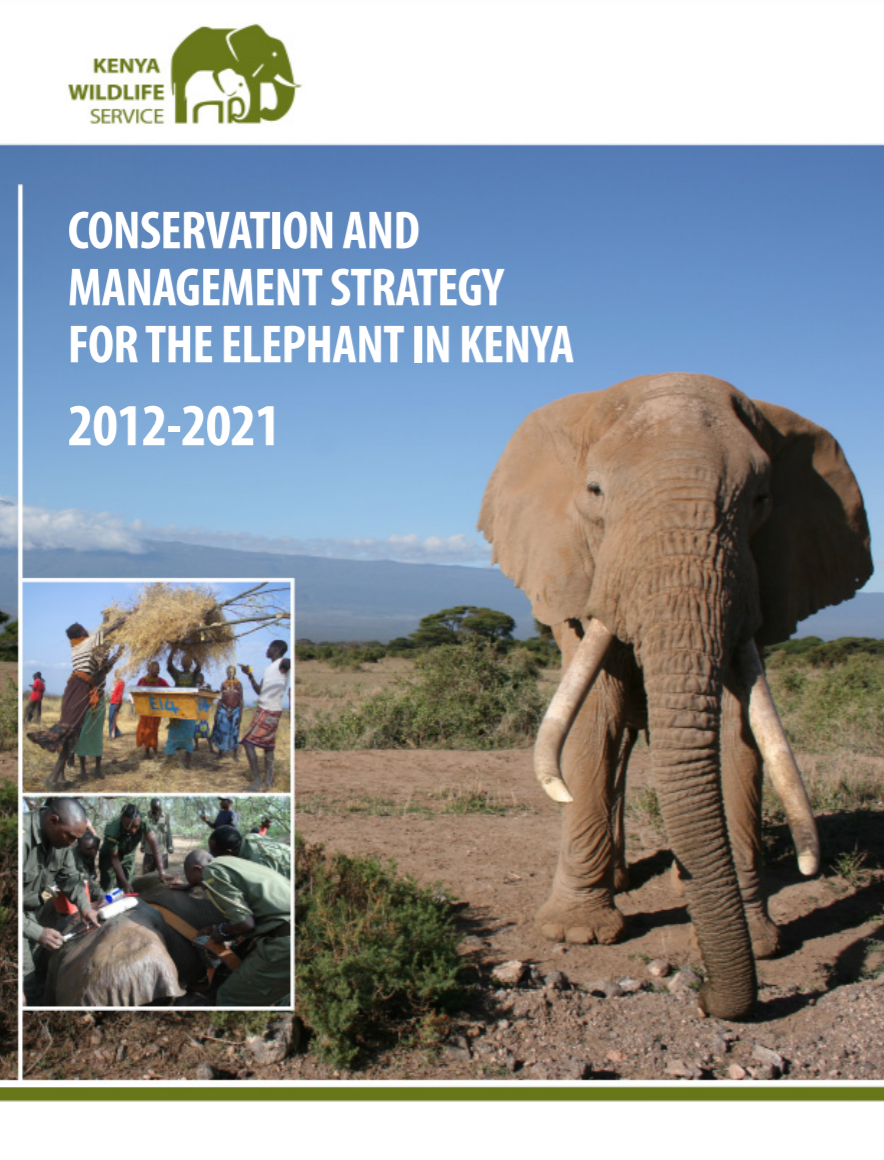Elephant Conservation Kenya: The Tsavo Trust is an action-orientated, field-based Kenyan not-for-profit conservation organisation that works to protect the country’s wildlife. We are committed to conservation in many guises but are particularly concerned with the protection of the African elephant.
The contributions of our benefactors keep our reconnaissance aircraft flying, our rangers in employment and, ultimately, they ensure the longevity of Africa’s elephants. If you can spare any amount, however small, please visit our donations page by following this link.
The future of Kenya’s elephants
Since 2012, the official Kenyan policy towards elephant conservation has been guided by the ‘Conservation and Management Strategy for the Elephant in Kenya’. This document, which you can access here, discusses the state of elephant populations in Kenya, the issues facing them and what should be done to help.
The above-mentioned document is a Kenya Wildlife Services (KWS) sanctioned document and has been influential in shaping the organisation structure of KWS, and the operational mechanics of the various charities, donors, and conservation organisations that work in conjunction with it.
The document outlined four main areas that need to be addressed to protect the nation’s elephants:
- To protect elephants from poaching
- To create more space for elephant conservation
- To control wildlife-human conflict
- To use research and technology to better manage elephant conservation
Indeed, these action plans have provided the basis for our own activities for the best part of the last decade. And, as the recovery of Kenya’s elephant population stands testament, these policies have been effective. However, the existing ‘Conservation and Management Strategy’ is also only set to last until 2021, and at some point in the near future, there will need to be a re-appraisal of the state of elephant conservation in Kenya. New operating frameworks will need to be created and implemented.

What does the future hold?
What has become quite clear in the last year is that it is exceedingly difficult to predict what is going to happen in the future. The whole world has been thrown into turmoil and unrest and the whole landscape of wildlife conservation has been deeply affected.

Unfortunately, conservation and tourism go hand-in-hand. In an ideal world, charities and organisations like Tsavo Trust would be able to operate at maximum capacity whether tourists were present or not.
Alas, tourism brings with it much-needed spending which is vital in protecting the wildlife we at the Trust cherish so much.
Furthermore, the economic fallout from COVID-19 has deeply affected local communities and individuals and, where poverty increases, so too does crime. An unfortunate consequence of the pandemic will be the increased exposure of elephants, and other animals, to poaching from desperate individuals.
The lack of tourists in the National Parks, although pleasant for the animals, also increases their exposure to poaching as there is increased anonymity for poachers.
It’s not only the increased risk of poaching that is endangering conservation efforts, but the other guiding principles of the current strategy are at risk too. The ability to control wildlife-human conflict, which hinges on the cooperation of local communities, has inevitably become a secondary priority as local communities focus on their own survival.
Finding new spaces for elephants, and using new technologies, is also likely to take a big hit due to financial strain.

New operating frameworks
The KWS is an exceptionally well-run organisation and there are few organisations who care as much about Kenya’s wildlife as they do. Indeed, in the document highlighted above, KWS outlined their desire to become a world leader in conservation and we are confident that they, and the Kenyan government will respond to the current crisis appropriately.
There also needs to be more global cooperation on wildlife conservation. The plight of elephants in Kenya is not an isolated or localised issue. It is an issue that is shaped directly by external influences and stressors.
We at Tsavo Trust hope that the future of conservation is community-led, but with significant financial support for these communities. Elephants, and other wildlife, directly affect the lives of local people who live near them, whether it is negatively or positively. Therefore, it is these communities who should be supported in coming up with new technology-backed ways of living with and protecting them.
As we speak, the KWS and the Kenyan government are likely coming up with the new guidelines for the next decade or so that will be implemented in 2021. We look forward to seeing these ideas and implementing them in our own daily practices.
As for what you can do, please take the to read some of the material we produce about our operation and its activities. You can find out more about us by reading our blog here. And, of course, we are a charitable organisation that is run and operated off the back of donations.

